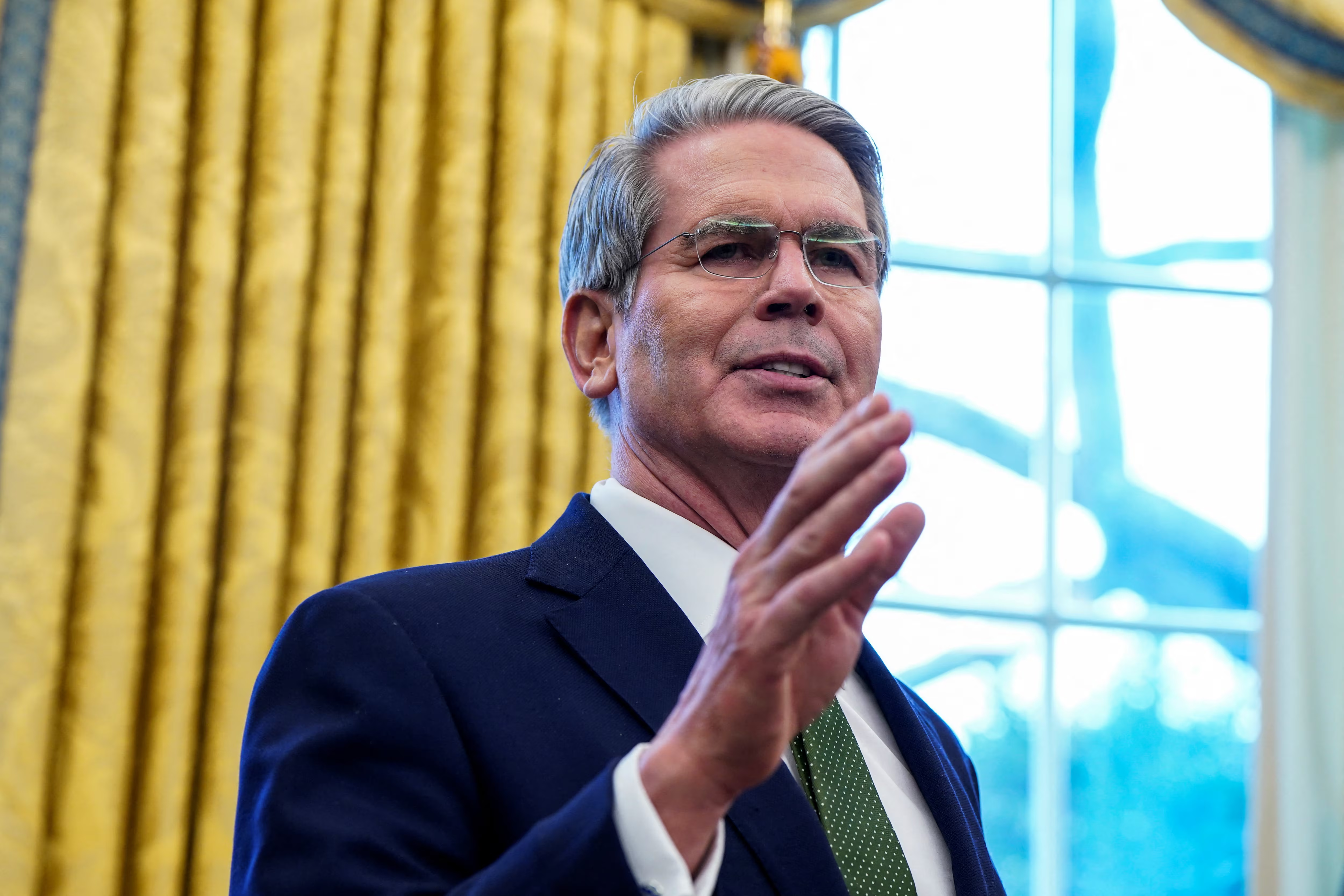
MIAMI/BERLIN, Feb 19 (Reuters) – U.S. Treasury Secretary Scott Bessent said on Wednesday he will skip next week’s meeting of finance ministers and central bank governors from the Group of 20 major economies in Cape Town, South Africa.
The decision to miss the regular gathering of finance leaders from the world’s largest economies is highly unusual for a U.S. Treasury secretary, as the U.S. often leads G20 agreements on financial and monetary policy matters.
Bessent said in a post on X that he would not attend the summit due to “obligations in Washington”. A senior official would attend in his place, he added.
He said he looked forward to seeing his global counterparts in Washington meetings of the International Monetary Fund and the World Bank in coming months.
One of the sources told Reuters that G20 member countries had been informed of Bessent’s decision not to attend. A second source said Bessent could not attend because he had “duties with the president.”
It was not immediately clear if those duties were linked to a possible summit meeting between U.S. President Donald Trump and Russian President Vladimir Putin.
Trump on Tuesday told reporters he would “probably” still meet with Putin to discuss ending the Ukraine war before the end of the month. The Kremlin echoed that hope early Wednesday, but said the meeting could happen later.
The White House and U.S. Treasury did not respond to requests for comment on Bessent’s plans. The New York Times first reported Bessent’s planned absence.
The G20 group – which includes the U.S., China and Russia among others – has tackled a range of issues affecting the global economy, from responding to the COVID-19 pandemic and fighting inflation to dealing with climate change, debt distress and trade conflicts.
SOUTH AFRICA TENSIONS
South Africa holds the G20 presidency from December 2024 to November 2025. The U.S. will head the group next year.
Tensions between the U.S. and South Africa have risen in recent weeks following complaints from Trump over South Africa’s land policy.
Earlier this month, Trump said that “South Africa is confiscating land” and “certain classes of people” were being treated “very badly.”
The White House said Washington would formulate a plan to resettle white South African farmers and their families as refugees, with U.S. officials to prioritize humanitarian relief for Afrikaners in South Africa, who are mostly white descendants of early Dutch and French settlers.
U.S. Secretary of State Marco Rubio subsequently canceled a trip to Johannesburg for a meeting of G20 foreign ministers on Thursday and Friday.
Mark Sobel, a former senior Treasury official, said the decision to skip the G20 gathering was a huge error.
“This was a golden opportunity for Bessent to meet his counterparts in plenary sessions and more importantly in behind-the-scenes bilaterals, including with China,” for discussions on global economic and tax policy and exchange rates, said Sobel, U.S. chair of the OMFIF think tank.
(Reporting by Andrea Shalal in Miami, Katherine Jackson in Washington and Christian Kraemer in Berlin; Additional reporting by David Lawder and Jasper Ward; Writing by David Lawder and Brendan O’Boyle; Editing by Chizu Nomiyama and Stephen Coates)

